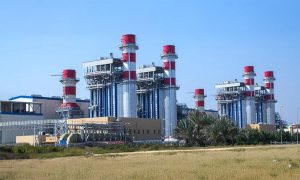Global realty investment boom led by GCC
The regional economies expected to outperform global markets in 2023, leading to strong appetite for real estate investment

With economies in the GCC expected to outperform the majority of global markets in 2023, regional investors’ appetite for global real estate investment opportunities is likely to grow, according to JLL’s report, titled ‘The Resurgence of Outbound Real Estate Investment from the GCC’.
The challenges posed by spiralling inflation, elevated energy costs, and hawkish monetary policy are impacting investor sentiment globally, stated JLL; and this is not only triggering delayed decision-making but also weakening liquidity in international real estate markets, further painting an uncertain global outlook.
However, the Middle East, in particular the GCC, is bucking this trend, as the region’s relatively robust economic conditions have helped strengthen market confidence as well as enhance appetite for discounted investment opportunities abroad, the firm noted.
In addition, the strong recovery in oil prices from mid-2020 has also served as an impetus for increased consumer confidence and buoyant investor sentiment in the region, leading to higher levels of capital being deployed into international real estate.
In mid November 2022, JLL announced Sean Doherty as Head of Program and Project Management for the MEA and, in mid December 2022, the firm said the Saudi construction segment remains the strongest in the MENA region.

Looking ahead, JLL anticipates shifts to portfolio strategies in favour of new economic sectors. While the office and hotel sectors have governed preferences in the past in cities such as London, Paris, and New York, there has been a shift to higher-growth sectors such as living and logistics. These, in aggregate, account for more than 40% of global investments over the past two years.
Investors are also increasingly focused on alternative sectors such as data centres and healthcare assets, a sign of a departure from last-decade strategies. Recent efforts to diversify portfolios are also in line with broader themes which were also amplified during the pandemic.
Data also shows that despite weakening economic growth globally, occupier demand for industrial and logistics space remains resilient, despite lack of available premises continuing to be a factor. As for the living sector, whilst signs of slow-down have emerged recently, evidenced by a moderation in rent growth, long-term tailwinds favour the sector and are expected to support resilience in performance.
As a consequence, GCC investors have significantly increased activity in the sector since 2020, and with living volumes now driving one-third of global investment, the sector is expected to become a more meaningful component of their portfolios.
In early January 2023, dnata broke ground on a $14mn cargo warehouse in Iraq.

























